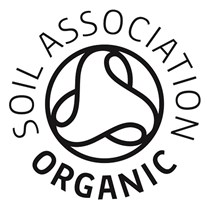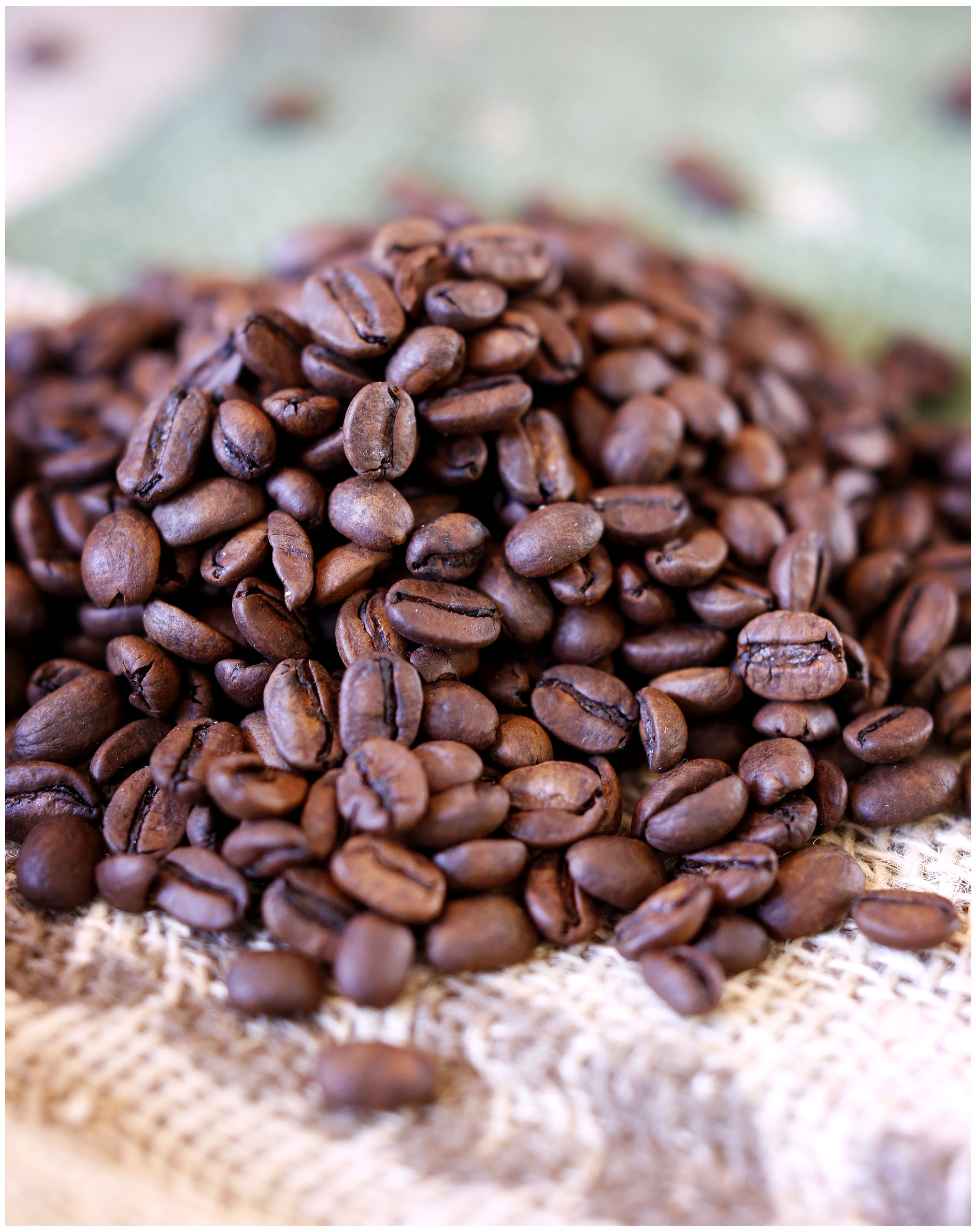
- Soil Association
- Take action
- Organic living
- What is organic?
- Organic and Fairtrade

Organic and Fairtrade - working together

Organic vs. Fairtrade
What’s the difference and how can they work together?
Like the Soil Association, the Fairtrade Foundation works hard to improve food systems through certification and public awareness. Fairtrade is about better prices, safe working conditions, local sustainability, and fairer terms of trade for farmers and workers.
Organic farming and food production focuses on putting nature first, encouraging practices that improve soil quality, biodiversity and animal welfare. This creates sustainable, healthy farming that allows land to remain fertile long into the future – in short, producing ‘food as it should be.' The Soil Association Certification scheme puts those principles of organic production into practice. The organic standards are a set of legal requirements that apply to all aspects of organic farming, manufacturing, production, storage and trade in the UK.
Fairtrade, on the other hand, guarantees producers and workers can enjoy sustainable livelihoods, fulfil their potential, and decide their future. This is largely achieved through the Fair Trade Minimum Price – a safety net that helps farmers become more income-secure and less vulnerable to price changes.
The Fairtrade Premium is an additional sum of money that goes into a communal fund for workers and farmers to use, as they see fit, to improve their social, economic and environmental conditions.
By requiring companies to pay sustainable prices, Fairtrade addresses the injustices of conventional trade, which traditionally discriminates against small-scale farmers and workers. It enables them to improve their position, have more control over their lives and helps to create more resilient supply chains.Anna Mann, Head of Responsible Business at The Fairtrade Foundation
Working together
The social goals of Fairtrade and the environmental aims of organic aren’t mutually exclusive - there are many crossovers between both types of certifications. Care is one of the four key pillars of the organic movement, and as such, Soil Association standards pay close attention to welfare principles throughout supply chains, ensuring farm owners and businesses provide a fair and adequate quality of life, work satisfaction and working environment.
Likewise Fairtrade standards bear similarities to organic, restricting the use of a number of agricultural chemicals, including certain pesticides and herbicides, with the aim of reducing the risk of harm to both farmers’ health and their local environment.

Under the Fairtrade Premium scheme, many Fairtrade farmers are in fact able to convert to organic systems, gaining the training required to begin swapping cheap agrochemicals for innovative farming and land management techniques that work with nature, not against it.
Depending on the commodity, between 4% (for tea) and 55% (for cotton) of Fairtrade farmers choose to go organic. That’s often because they see organic as a way to improve not just their livelihoods, but to support the environment and ensure that farmers and workers are not exposed to harmful chemicals.Lee Holdstock, Senior Business & Trade Development Manager, Soil Association Certification
So, when you see both the Fairtrade and Soil Association organic symbols on a product, you are not only doing right by the producers and ensuring that it's met the highest standards of social and environmental welfare, but you can also be sure it’s been inspected and independently certified, so it’s food you can trust. Together, the Fairtrade Mark and Soil Association Organic symbol protect human and animal health, safeguard the environment, and defend the interests of farmers and citizens.
Here is a selection of Soil Association organic businesses that also opt for Fairtrade certification of their produce, from coffee to cola.
-
Divine
A global, farmer co-owned chocolate company whose mission is to help end exploitation in the cocoa industry, creating a world where farmers thrive and prosper. Divine's business model reflects the belief that producers should earn a share of the profits they help to create.
Divine’s range of organic dark chocolate is produced by CECAQ-11, a co-operative on the ‘Chocolate Island’ of São Tomé, a forested volcanic island near West Africa that was once the biggest cocoa producer in the world.
Comprising of 20 different farming communities, the co-op is both organic and Fairtrade certified – try their organic ‘dark chocolate with lemon’ or ‘dark chocolate with blueberry & popped quinoa’ bar

-
Karma Cola
Established to help rectify the imbalances in the world’s cola industry, Karma Drinks are one of the leading innovators in Fairtrade soft drinks.
They work with cola growers in Sierra Leone and ginger and vanilla farmers in Sri Lanka to produce delicious organic fizzy drinks.

-
English Tea Shop
English Tea Shop consistently source their teas from a selection of small-scale producers just like Weerakoon Priyarathna, an organic farmer we met recently in Sri Lanka.
Their founder Suranga Herath describes how "these communities struggle in the face of fluctuating market conditions and a lack of certainty about the future and we think it is up to businesses to do all they can to share value throughout the supply chain.”

-
Percol
Percol have been in the organic and Fairtrade coffee business since 1987, producing the first ground coffee to obtain the Fairtrade mark.
Priding themselves on ‘positive drinking,’ they’ve remained at the cutting edge of progressive coffee culture, becoming a carbon neutral and certified organic business whilst introducing plastic-free packaging.

-
Clipper
Certified for over 27 years, Clipper is at the heart of the Fairtrade movement.
Many products in their range are certified Fairtrade and organic too, including their Fairtrade & Organic Super Green Range, and a deliciously rich coffee blend from Papua New Guinea.
The 2021 Clipper Climate Cast convened by Clipper illustrates how Fairtrade and organic agriculture can reinforce one another.

-
Bird & Wild
As well as certifying to organic and Fairtrade standards, Bird & Wild makes every effort to meet a host of sustainability goals – like how their shade-grown coffee is grown under the rainforest canopy, creating a haven for birds and other wildlife, and reducing soil erosion.
A portion of their sales is also donated to the RSPB and Smithsonian Migratory Bird Centre.

-
Cafe Direct
With 100% Fairtrade Coffee, Tea, and Cocoa, Café Direct were the first coffee company to certify Roast and Ground coffee in 1994.
They champion the work and passion of smallholder growers, delivering great tasting hot drinks to improve livelihoods, whilst forging new, better ways of doing business. An example of this is their Organic Partnership with a co-op in Mexico, where the co-op is committed to sustainable and organic production.
The co-op team supports producers to grow coffee organically and implements measures to reduce the region’s vulnerability to the effects of climate change.

-
Green & Black’s
Green & Black’s was founded in 1991, by husband and wife, Craig Sams and Jo Fairley. Craig was the organic pioneer, opening Britain’s first natural food shop in 1969. He commissioned the first sample of organic chocolate in the UK: with 70% cocoa and real vanilla. Their organic chocolate is also certified by the Fairtrade Foundation. In 1994, Maya Gold was the first chocolate in the UK to be awarded the Fairtrade Mark.
Decades later, Green & Black’s is still one of the largest and most-loved Fairtrade chocolate brands. Through its long-term commitment to Fairtrade, Green & Black’s has enabled cocoa, sugar and vanilla farmers in its supply chain to get a better price and a Premium to invest in projects improving lives in their communities.

-
Buy organic and fairtrade products
Your local independent retailers are one of the best places to buy organic and Fairtrade; find your local stores here.
Find your local independent retailer
In this section...


